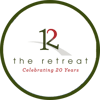The Loot, The Lift and The Lover
During my four decades of recovery, I’ve worked with hundreds of young men who are enthusiastic and excited about recovery. For them, everything is new and life has taken on a different meaning. They are going to meetings regularly; they are working with their sponsors and the wreckage from their past is slowly getting repaired. But alas, they seem to hit three common roadblocks which sends them spiraling back down the path whence they came. I refer to these three roadblocks as: The Loot, The Lift and The Lover.
The Loot:
All too often in recovery I see a person switch one compulsive behavior for another. Sometimes this new compulsive behavior may have an initial positive impact on the individual and the individual’s family. I often see this manifested in work-life. When the initial enthusiasm for recovery starts to wane, the individual begins to focus on his long-neglected business responsibilities. Projects that were ignored, deadlines that were missed, disgruntled employees, disenchanted clients all start to show a marked improvement. The individual feels a boost of self-confidence with the initial gains in his business. The extra income generated from focusing on work allows him to pay down or pay-off neglected bills. The family life starts to improve as the stress and anxiety from financial woes begin to disappear. And then some sort of variation of the following conversation will take place.
Sponsor: “Missed you at the meeting last night. Where were you?”
Sponsee: “I had to work late. I’m trying to catch-up on some projects.”
Sponsor: “Ok, but are you going to go to a different meeting this week?”
Sponsee: “I’ll try to, but I’m really starting to turn things around at work and I don’t want to lose my focus.”
Soon the individual is going to meetings in a haphazard fashion and then he stops going completely. Next, he stops calling his recovery contacts. Eventually, the chasing of “The Loot” no longer carries with it those adrenaline rushes he first felt when he threw himself back into work and shortly thereafter, he starts to drink again.
The Lift:
Another common obstacle I find in early recovery is the “hustle for the muscle”. A person in early recovery may often start to focus on their physical conditioning. Perhaps they were a runner, or a lifter, but these activities went to the wayside when the addiction became the sole focus of their being. Now that they are in recovery, they start to pick-up their training again.
Initially, all seems well with the individual. Perhaps added pounds begin to drop. Pants that for long were in the back of the closet are now able to be worn again. The individual feels physically better and this new conditioning program seems to complement the recovery program perfectly. However, and sadly, the training program begins to dominate the individual’s world. And then some sort of variation of the following conversation takes place.
Sponsor: “Missed you at the meeting last night. Where were you?”
Sponsee: “I was at the gym. I’m really getting into my work-outs.”
Sponsor: “Ok, but are you going to go to a different meeting this week?”
Sponsee: “I’ll try to, but I’m really starting to build some muscle mass right now and I don’t want to lose my focus.”
Soon the individual is going to meetings in a haphazard fashion and then he stops going completely. Next, he stops calling his recovery contacts. Eventually, the chasing of “The Lift” or the running after the “The Runner’s High”, or the “Hustle for the Muscle” no longer carries with it an adrenaline rush and shortly thereafter, he starts to drink again.
The Lover:
The last obstacle to long-term recovery I often find with the men with whom I work is the new relationship. During active addiction, relationships/marriages take on a minor role in the person’s life. Sadly, those relationships often dissolve as the person struggles with the disease. Then, through some sort of divine intervention or epiphany the person begins a recovery program.
As in the two previous scenarios, the individual’s life begins to make marked improvements in early recovery. A zest for living has taken hold. The person feels as if they have been rocketed into a new existence. They have found a fellowship and new cadre of friends and associates with whom to live, learn and laugh. And then, she catches his eye…
At first it seems innocent enough. They are both in recovery and they are just friends. They go out to coffee after the meeting and call each other to discuss the program. He thinks, “I get just as much out of talking to her as I do my sponsor.” Eventually, romantic feelings begin to evolve and then some sort of variation of the following conversation takes place.
Sponsor: “Missed you at the meeting last night. Where were you?”
Sponsee: “I was having coffee with __________. We’re really into each other.
Sponsor: “Ok, but are you going to go to a different meeting this week?”
Sponsee: “I’ll try to, but I really want to work on this relationship right now. Besides, when I’m with her, it’s like I’m going to a meeting.”
Soon the individual is going to meetings in a haphazard fashion and then he stops going completely. Next, he stops calling his recovery contacts. The excitement of the new relationship starts to wane and he no longer feels the same giddiness he did when they were first romantically involved. The “working on the relationship” really does begin to feel like work. Shortly thereafter, he starts to drink again.
Solution:
So how does one avoid the above scenarios of “The Loot, The Lift and The Lover”?
First, be aware that there is a problem or the potential for a problem. Don’t stumble upon something behind you. Your addiction loves to chase things that make you feel good, happy, excited. Sometimes, those things aren’t in your best interest. Just because it feels good, doesn’t mean it’s good for you.
Second, don’t deviate from the recipe for success. It sounds ludicrous, but here’s what our brains say to us, “You’re doing really well with your program. You’re going to meetings, working the steps, calling your sponsor, - everything is going great. So, let’s change things up a bit.” It’s been said that, “People move away from that which has made them successful.” The antidote to this dilemma is to stay on the path and to keep doing the things that keep you sober. Repetition and discipline are two important ingredients in the recipe for recovery.
Third, the ancient Greek philosopher Aristotle stated that every human looks for the means to become a wholly functioning being. A practice in achieving this is “moderation in all things.” Although moderation hasn’t worked for us with our use of drugs and alcohol, it can work in helping us achieve balance and harmony in our lives. With a little careful planning we’ll find that there’s enough time in the week to meet our recovery needs as well as our responsibilities at work, the gym and in our relationships.
Finally, remember what the book, “Alcoholics Anonymous” tells us about our recovery.
- “Rarely have we seen a person fail who has thoroughly followed our path” – page 58
- “It is easy to let up on the spiritual program of action and rest on our laurels. We are headed for trouble if we do, for alcohol is a subtle foe. We are not cured of alcoholism.” – pg. 85
These two truisms are helpful reminders in our recovery. They caution us to stay on the path. They urge us to keep doing that which has been successful in our recovery. And they are cautionary tales when dealing with the “The Loot, The Lift and The Lover.”
Maj. JD
Major John Donovan (JD) is the Director of the Recovery Community Network (RCN) in St. Cloud, Minnesota. The RCN is a Recovery Community Organization devoted to serving and advocating for the recovery community of Central Minnesota.
John is an active and energetic advocate for recovery. He is a public speaker and workshop facilitator on topics pertaining to recovery; he contributes monthly to two recovery blogs and he co-hosts recovery radio with Kelly Cordes on WJON AM-FM. Maj Donovan is the author of the book, “A Soldier’s Recovery Journey”.
For More Information on The Retreat Programs Please Download our FREE Brochure.






